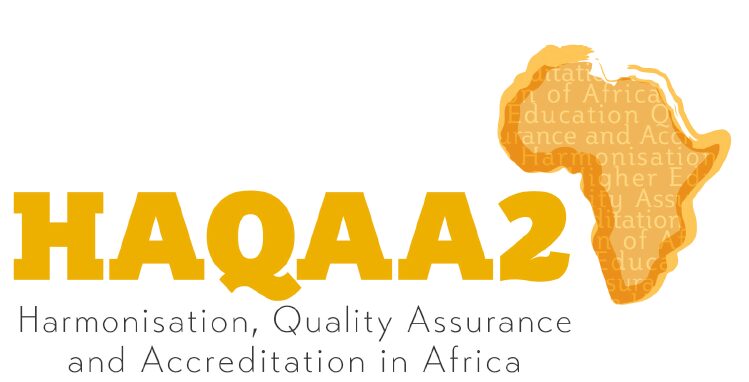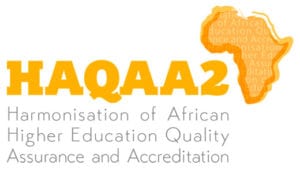
By Anna Gover, Senior Project Manager at the European Association for Quality Assurance in Higher Education (ENQA)
Anna Gover, as a Senior Project Manager at ENQA, is responsible for ENQA’s contribution to the HAQAA Initiative, which supports the harmonisation of quality assurance in Africa. She also supports the work of the ENQA Board and represents ENQA at meetings and events across Europe. Before joining ENQA in February 2020, Anna worked for the European University Association (EUA) where she worked on the association’s quality assurance activities and managed their external quality assurance agency, the Institutional Evaluation Programme (IEP).
As the COVID-19 pandemic swept across Europe in early 2020 there was an immediate impact on the higher education sector. Universities closed their campuses, sent home staff and students, and scrambled to transfer learning, teaching and assessment activities online. For quality assurance agencies too, many normal operations have been suspended. For the most part, the immediate response has been to postpone or suspend review processes and extend accreditation periods if required. There are a few examples of agencies conducting reviews online, but in these initial few months of dealing with the pandemic, this seems to have been the exception rather than the norm.
In response to this, one of the early actions from the European Association for Quality Assurance in Higher Education (ENQA) and the European Quality Assurance Register for Higher Education (EQAR) was to reassure agencies that their compliance with the Standards and Guidelines for Quality Assurance in the European Higher Education Area – EHEA (ESG – the framework underpinning all quality assurance activities in the EHEA) would not be put at risk if the agency temporarily suspended their usual activities. Furthermore, we highlighted that conducting review processes and site visits entirely online and/or extending the validity of accreditations are fully permissible under the ESG, which recommend but do not explicitly require a site visit as part of review processes, and do not stipulate the frequency of review processes.
While the European level framework may not pose a problem, legal provisions at national level or from professional regulatory bodies have created challenges for some agencies. Urgent action, including emergency legislation, has been required to resolve issues such as prolonging accreditation and licensing periods, allowing alternative forms of assessments, and recognising degrees that have been delivered online instead of on campus as planned.
The suspension of review processes does not mean that agency staff have been sitting idle. Far from it. The huge workload involved in rearranging evaluation timelines, exploring alternative options and communicating with institutions should not be underestimated, particularly when staff are also adapting to working from home, combining work with childcare and dealing with a myriad of other issues that come with such an unprecedented situation. Furthermore, many agencies have focused significant attention on supporting higher education institutions in tackling their most immediate challenges, by issuing guidance and engaging in discussion with key stakeholders across the sector.
At ENQA, we are also very aware of the important role that we have to play in facilitating the sharing of practice between our member agencies. At a time when the sector is dealing with issues that just a few months ago few could not have been foreseen let alone planned for, it is crucial that we can learn from each other. Amongst other actions, ENQA is running a social media campaign to encourage agencies to share their policies, practices and resources under the hashtag #QAfromHome.
Crisis situations calls for emergency measures, but as we emerge from the initial panic, reflection and adjustment is still needed. While restrictions are being gradually relaxed in many countries, uncertainty prevails and there is already talk that quality assurance, and indeed higher education, will never quite be the same again. Looking forward, many agencies will need to explore the options for conducting review processes online in order to restart their activities if social distancing measures remain in place for some time. This may be particularly pertinent in order to avoid significant financial problems for agencies that are funded by review fees, and for agencies that rely on easy international travel for cross border operations or the use of international experts. Moving activities online requires a significant re-thinking of the methodology. Simply moving all planned meetings to videoconference format will be neither efficient nor effective.
Whatever the format of the review processes, it is also likely that agencies will have to pay significant attention to supporting institutions in assuring the quality of online provision. Institutions that have a strategic focus on distance education and e-learning have spent many years and significant resources producing online programmes that offer high quality teaching, a positive student experience, as well as effective student support. Staff in universities across Europe have had to make this shift in a matter of weeks. Once the dust settles and institutions can reflect on what works and what doesn’t, experts are predicting that e-learning will play a greater role in higher education even after they are able to re-open.
Quality assurance may not be at the forefront of everyone’s minds during this pandemic, but it cannot be put on hold indefinitely. Agencies will need to continue their important role in supporting institutions in ensuring that their education provision is fit-for-purpose and meets the needs of all stakeholders.
Case example from AEQES, the quality assurance agency for the French-speaking higher education sector in Belgium
By Caty Duykaerts, Director of AEQES and member of the HAQAA2 Task Force for the ASG-QA
Since mid-March AEQES has postponed all site visits planned for the remainder of the academic year. This amounts to seven programme evaluations and four pilot institutional evaluations, representing 13% of our total expected site visit days for the year. These have been rescheduled for the end of 2020 due to uncertainty around the length of the lockdown measures in Belgium. This, in turn, has had a significant impact on the overall planning of our external quality assurance activities. Concretely, we decided to extend the pilot phase for institutional evaluations by an additional year so as to spread the activities over that extended period. And also take into consideration the extra workload that the Covid-19 crisis has brought for higher education institutions.
Because the pilot phase for institutional evaluations was agreed by the Government and is written as an amendment in our legal framework, we had to make sure the Government would agree to this change, as well as taking considerable time to explain the new planning to individual higher education institutions.
At the back of our minds, we now realise that we may well have to re-plan everything again in the autumn if things are not yet back to normal. Thankfully, our higher education system is not based on accreditation, so we do not face problems of expiring accreditations or issues or recognition.
Simultaneously we are reflecting on how to perform virtual visits: Are these possible? Desirable? Negotiable? Besides convincing reluctant experts or institutions, we also have to consider thorny issues such as how to guarantee the confidentiality of the virtual conversations and how to organise the proper consultation of additional documents.

